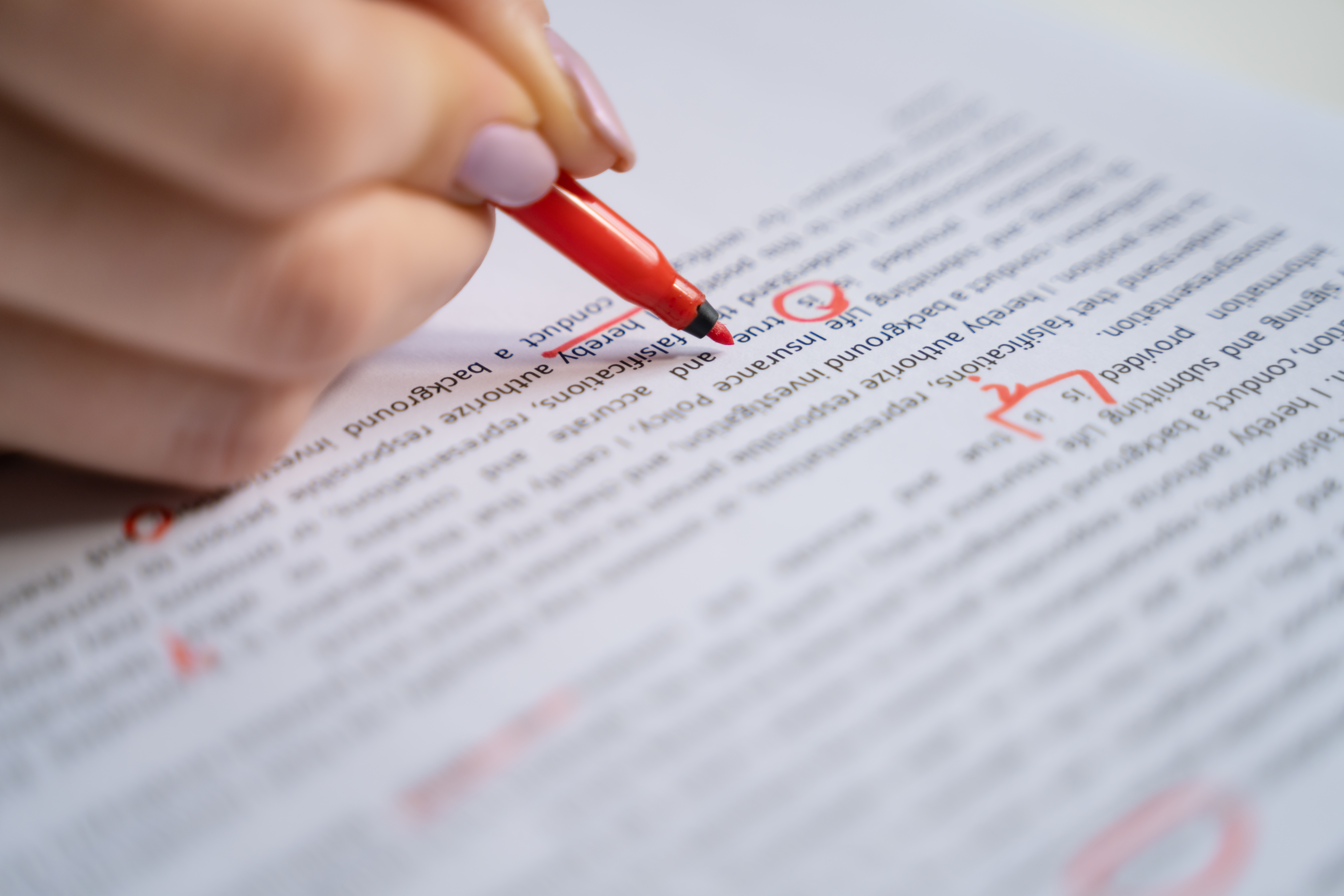
In the world of writing and publishing, the terms "editing" and "copy editing" are often used interchangeably, leading to confusion about their distinct roles and purposes. Both stages play critical roles in refining written content, but they address different aspects of the writing process.
In this blog post, we will explore the fundamental differences between editing and copy editing, shedding light on their unique functions, techniques, and significance in producing high-quality written material.

What Is Editing?
Editing is a comprehensive and holistic process that encompasses a wide range of tasks aimed at improving the overall quality, clarity, and effectiveness of a piece of writing. The primary objective of editing is to shape and mold the raw material into a polished and well-structured piece that resonates with the intended audience. Here are the key components of the editing process:
-
Content Evaluation
- The editing process begins with a thorough evaluation of the content. Editors scrutinize the core ideas, concepts, and arguments presented in the writing to ensure their coherence, relevance, and effectiveness in conveying the intended message. They look for gaps in information, weak arguments, and inconsistencies that need to be addressed. Structural Improvements
-
Structural Improvements
- Editors focus on the organization and flow of the content. They analyze the structure of the writing, evaluating the logical sequence of ideas and the overall coherence of the piece. If needed, editors may rearrange paragraphs, sections, or chapters to create a more logical and engaging flow.
-
Style and Tone
- Writing style is a crucial aspect of editing. Editors work closely with the writer to ensure that the tone, voice, and language are appropriate for the intended audience. They may suggest changes in style to enhance readability and align with the writer's purpose.
-
Clarity and Conciseness
- Editors aim to make the writing clear and concise. They remove redundancies, wordiness, and convoluted phrasing, making the content more straightforward and engaging for readers.
-
Pacing and Narrative
- For longer pieces, such as novels or academic papers, editors evaluate the pacing and narrative elements. They ensure that the writing maintains the reader's interest throughout, striking a balance between exposition, action, and character development.
What Is Copy Editing?
Copy editing is a specialized and detail-oriented stage in the editing process that focuses on the technical aspects of the writing, ensuring grammatical correctness, consistency, and adherence to style guidelines. Copy editors work with nearly finalized drafts, paying meticulous attention to the following elements:
-
Grammar and Syntax
- One of the primary responsibilities of copy editors is to correct grammar errors, sentence structure, and punctuation mistakes. They ensure that the writing adheres to the rules of standard written English.
-
Spelling and Typos
- Copy editors are vigilant in catching spelling errors, typographical mistakes, and inconsistencies in spelling throughout the document.
-
Style Guide Compliance
- Proficient in various style guides (e.g., APA, MLA, Chicago Manual of Style), copy editors ensure that the document adheres to the specific guidelines required by the client or publication.
-
Consistency and Formatting
- Copy editors maintain consistency in terminology, capitalization, hyphenation, and formatting choices throughout the document.
-
Fact-Checking
- Copy editors verify information, cross-referencing sources to ensure accuracy and credibility.
The Interplay Between Editing and Copy Editing
Editing and copy editing are interconnected stages that often complement each other in the writing process. The flow between these stages can vary depending on the project and the team involved:
-
Editing First, Copy Editing Later
- Traditionally, the editing process precedes copy editing. An editor will initially address structural and content-related issues before passing the work to a copy editor for fine-tuning the language and technical aspects.
-
Collaborative Effort
- For complex or substantial projects, collaboration between editors and copy editors is common. They work together to ensure that the final product is polished and error-free.

The Importance of Editing and Copy Editing
Both editing and copy editing are indispensable steps in producing high-quality written material for various reasons:
-
Enhanced Communication
- Effective editing ensures that the message is clear and coherent, making it easier for the audience to understand and engage with the content. Copy editing, in turn, presents the message in a professional and error-free manner, preserving the writer's intended meaning.
-
Credibility and Professionalism
- Meticulous copy editing helps maintain the credibility of the writer or publication by eliminating language errors and inconsistencies that could undermine the overall message.
-
Reader Engagement
- Well-edited and polished content captivates readers, keeping them invested in the text and encouraging them to read further.
-
Conveying Intent
- Editing and copy editing work in tandem to ensure that the writer's intent and tone are conveyed accurately to the audience, minimizing misinterpretations.
How to Decide Between Editing vs. Copy Editing
Knowing when you need editing vs. copy editing depends on the specific needs and goals of your written work. Understanding the differences between the two processes will help you make an informed decision.
You may need editing when:
-
The Manuscript Requires Comprehensive Review
- If your written piece lacks coherence, has unclear arguments, or needs restructuring for better flow, editing is necessary. Editors will provide feedback on content, structure, and overall effectiveness.
-
The Writing Style Needs Improvement
- If you want to enhance the tone, voice, and language to engage your target audience better, an editor can help refine your writing style.
-
You Need Substantive Feedback
- When you seek guidance on character development (for fiction), evidence support (for academic writing), or narrative pacing, an editor can offer valuable insights.
-
The Manuscript Is in Early Stages
- Editing is typically more suitable for early drafts that require significant revisions to achieve the desired outcome.
You may need copy editing when:
-
The Manuscript Is Nearly Finalized
- If you've completed your work and require a meticulous review for grammar, spelling, punctuation, and consistency, copy editing is the appropriate choice.
-
Style and Formatting Need Attention
- Copy editors ensure adherence to style guides (e.g., APA, MLA) and maintain consistency in terminology, capitalization, and other formatting elements.
-
You Want to Eliminate Errors
- If your primary concern is correcting typos, grammatical mistakes, and punctuation errors, copy editing will help ensure a polished and error-free document.
-
You Have Time and Budget Constraints
- Copy editing is generally less time-consuming and more cost-effective than editing, making it a suitable option for tight schedules or limited resources.
In some cases, a hybrid approach that combines both editing and copy editing may be beneficial. For instance, you could have an editor provide feedback on the structure and content first and then follow up with copy editing for the final polish.
Regardless of your choice, seeking professional assistance from experienced editors or copy editors will greatly enhance the quality of your written work and ensure it effectively communicates your message to your intended audience.

How eContent Pro Can Help
If you are seeking copy editing for your manuscript, consider choosing eContent Pro (eCPro).
Our English Language Copy Editing & Proofreading service enhances the overall readability and flow of your manuscript, ensuring that your message is effectively conveyed to your target audience. Our professional copy editors will meticulously address a complete range of issues within your document, ensuring that your work is ready for publication.
By availing yourself of our English Language Copy Editing & Proofreading service, you can significantly increase your chances of journal acceptance, as well as enhance the impact and credibility of your research in the academic community. Our experienced team of professional copy editors will ensure that your writing is polished and error-free, allowing your research to shine and make a lasting impression on readers.

Make the Correct Choice
Don't let avoidable mistakes hinder the recognition and appreciation your research deserves. Trust us to provide you with top-notch copy-editing services that will elevate the quality of your manuscript and help your work stand out among the competition. With our commitment to excellence and dedication to meeting your specific needs, you can confidently submit your manuscript for publication, knowing that it has been refined to meet the highest scholarly standards.
Contact us today to learn more about our editorial services and how we can help you achieve your publishing goals. With our team of experts by your side, you can be confident that your document will be polished to perfection and ready to stand out in the competitive publishing landscape.